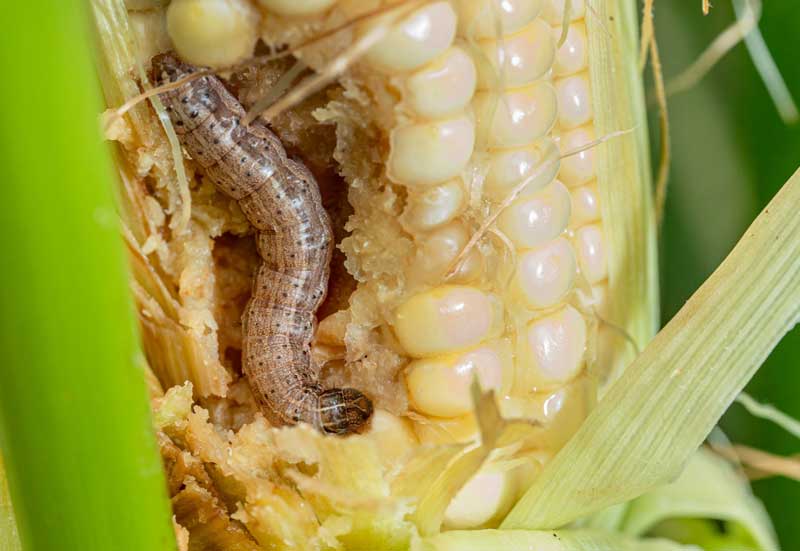The fall armyworm, or Spodoptera frugiperda, is an invasive pest. It poses a serious threat to farming around the world.
This pest originally came from the Americas. It has quickly spread to many areas, including Africa, Asia, and parts of Europe. This has caused great worry for farmers and agricultural experts.
Current Spread in Australia:
The Fall Armyworm is present in Australia. It was first detected in early 2020 in the Torres Strait and Northern Queensland and has since spread rapidly across several states and territories.
- Queensland: Widespread, especially in northern and central regions.
- Northern Territory: Established across key agricultural areas.
- Western Australia: Detected in the Kimberley region and extending southward.
- New South Wales: Confirmed in several regions, including the north coast and inland areas.
- Victoria and South Australia: Sightings have been reported, but infestations remain more limited.
Impact on Agriculture:
The Fall Armyworm poses a significant threat to crops like:
- Maize (corn)
- Sorghum
- Cotton
- Rice
- Sugarcane
- Various vegetables and pasture grasses
The fall armyworm is particularly notorious for its voracious appetite, feeding on a wide range of crops, as listed above. Its larvae are capable of consuming large quantities of plant material, leading to significant defoliation and, in many cases, complete crop loss. The pest can reproduce quickly and adapt to many environments. This makes it a tough challenge for farmers who want to protect their livelihoods.
Challenges Posed by the Fall Armyworm:
The economic impact of the fall armyworm infestation is staggering. Farmers have reported large losses. Some estimates say the pest could cause billions of dollars in damage each year.
This financial strain affects individual farmers and has wider effects on food security. Lower crop yields can cause higher prices and shortages of essential food items in local and global markets.
- Rapid Reproduction: Multiple generations in a single season.
- Wide Host Range: Feeds on over 350 plant species.
- Resistance to Pesticides: Difficult to manage with conventional chemical controls.
- Fast Movement: Can travel long distances quickly, spreading infestations.
The urgency of addressing the fall armyworm threat is underscored by its rapid spread and the potential for long-term consequences on agricultural systems. Farmers, policymakers, and researchers must collaborate to develop effective strategies to manage this invasive pest, ensuring the sustainability of food production and the livelihoods of those who depend on agriculture.
Management Strategies:
In addition to the direct damage caused by the fall armyworm, the pest also poses challenges for pest management strategies. Traditional control methods, like chemical pesticides, may not work well against this tough pest. This can lead to higher costs and possible environmental issues.
Researchers and agricultural groups are looking for new solutions. They are exploring biological control methods and integrated pest management. These approaches aim to fight the fall armyworm and reduce its effects on crops.
Farmers are employing integrated pest management techniques, such as:
- Crop Monitoring: Regular inspections for early signs of infestation.
- Field Hygiene: Mulching and ploughing crop residues to disrupt breeding.
- Biological Controls: Introducing natural predators.
- Resistant Crop Varieties: Planting crops that are less susceptible to Fall Armyworm damage.
Why It's a Concern:
- Fast Spread: Adult moths can fly long distances, enabling rapid infestation.
- High Reproduction Rate: Multiple generations can occur in a single season.
- Pesticide Resistance: Known to resist many common pesticides, making control challenging.
- Crop Damage: The larvae feed aggressively on leaves and stems, causing severe yield losses.
Understanding the ancestry of pests and diseases is important for researchers. It gives them valuable insights into their life cycles, behaviors, and genetics. By studying the evolutionary history of these organisms, scientists can identify patterns of resistance and susceptibility, which can inform the development of targeted control strategies. This knowledge allows for the creation of more effective and sustainable pest management practices, reducing the reliance on chemical pesticides and minimizing environmental impact.
Farmers face many challenges as they work to protect their crops and achieve the best yields. These challenges include the ongoing threat of invasive species, new pest populations, and more plant diseases. Also, factors like climate change, soil damage, and changing market demands make it harder for them to keep their farms healthy and productive.
To combat these issues, farmers must stay informed about the latest research and advancements in agricultural science. This includes adopting integrated pest management (IPM) techniques, which combine biological, cultural, and chemical methods to control pests in a more holistic manner. Farmers can reduce pest problems by learning about pests' ancestry and behavior. They can use methods like crop rotation and resistant crop varieties to prevent infestations.
How Cloveragri's machinery can assist farmers in combatting this threat.
- Mulchers for Pest Control:
- Destroy Fall Armyworm habitats by mulching crop residues and overgrown areas. Cloveragri's heavy-duty mulchers reduce the larvae's breeding grounds, limiting their ability to survive and spread.
- Rotary Hoes for Soil Preparation:
- Using Cloveragri’s IGNA Rotary Hoe helps incorporate crop residue into the soil, disrupting the lifecycle of pests and improving soil health, making fields less inviting for Fall Armyworms.
- Versatile Attachments for Effective Field Management:
- Keeping fields clear and well-maintained with our range of mowers, backhoes, and mulchers helps reduce pest populations by eliminating the conditions that allow Fall Armyworms to thrive.
In the end, researchers and farmers must work together. This teamwork is key to creating new solutions. These solutions help protect crop yields and support sustainable farming practices.
By using scientific knowledge and practical experience, the agricultural community can work together. They can tackle the urgent challenges of modern farming. This will help ensure food security for future generations.
By integrating effective pest management strategies with reliable machinery, farmers can protect their crops and livelihoods from this destructive pest. Cloveragri’s trusted range of equipment ensures you are well-prepared to face these challenges head-on.
🌾 Stay ahead of the threat. Invest in Cloveragri machinery to protect your farm today! 🚜

